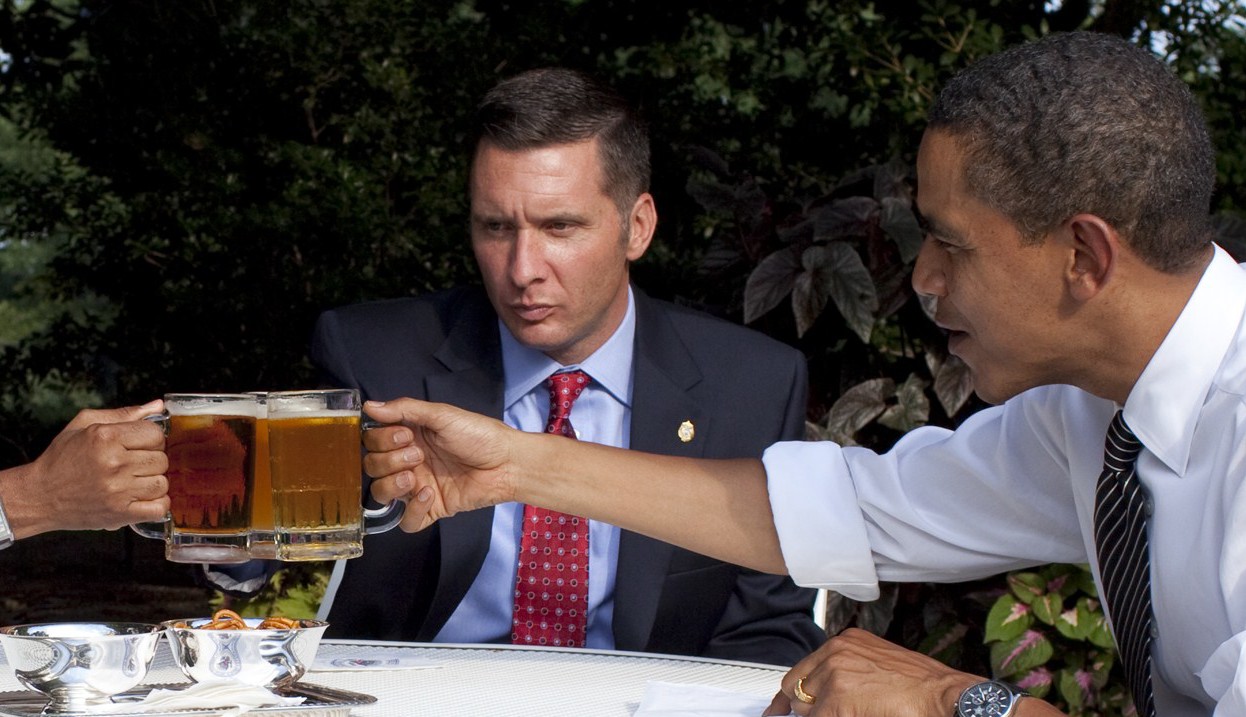“Drunk people ran it better!” Or as Jack Sparrow might have said, “Where has all the bipartisanship and cross-party cooperation gone?” It may be the law not to drive under the influence, but according to comedian Lewis Black, such laws only get passed when legislators are sporting a decent blood alcohol content. An impassioned rant from a highly humorous man, yes, but Mr. Black might actually be onto something.
The term “smoke-filled room” might have originally been coined back in the 1920s, but it remains a quintessential and idiomatic expression for an image of what is nominally public service made too private. Men in suits smoking expensive cigars while cradling glasses of decades-old whiskey in one hand, as they determine the paths our politics takes. It is by and large a negative image—one of elitism, very much counter to the democratic principles America upholds as its pillars of government. In practice, however, the “smoke-filled room” is a necessary and essential part of the political apparatus, especially in the current spirit of partisanship and enmity. Its image might be a negative one, but the interpersonal relationships forged in such settings, particularly across party lines, are of concrete importance.
A prominent example is the relationship that unfolded between Nicholas Longworth and John Nance Garner during the Roaring Twenties, a decade when such divisive issues as Prohibition were being hashed out. Longworth was a Republican from Ohio and Garner a Democrat from Texas. Such ideological and geographical differences would seem to discount any chance of a personal relationship, particularly as Longworth was Speaker of the House at the time, and Garner Minority Leader. Yet the two bonded over their meetings in room H-128 of the Capitol, a place they nicknamed the “Bureau of Education.” There they could hammer out bipartisan deals over booze and conversation in the presence of a mix of congressmen from both parties. The same room was used to host the Bureau of Education’s spiritual successor, former House Speaker Sam Rayburn’s “Board of Education.” Decades later, two completely politically opposed figures, Hubert Humphrey and Barry Goldwater, would happily have drinks after their vocal skirmishes on the Senate floor, despite the politically tumultuous climate of the 1960s. These are scenes Mr. Black would no doubt have appreciated.
This phenomenon of reaching across the aisle on account of personal fondness has recently played a more critical role than ever before. The recent debacles that were the near-disasters concerning the debt ceiling and tax cuts were eventually solved not by inflammatory rhetoric and threats from either party, but by the friendship between two key cogs of government Senate Minority Leader Mitch McConnell and Vice President Joe Biden. Having served together in the Senate for some 26 years, the two had a close working relationship and were able to utilize this in hammering out a deal that averted the country’s first default on debt in its two centuries of existence. An earlier era saw Lyndon Johnson, parachuted into the presidency after John F. Kennedy’s assassination, reaching out to his ex-Senate colleague and Republican leader Edward Dirksen to pass the politically divisive Civil Rights Act.
Biden and McConnell’s double act is a happy exception to the animosity between the two main parties that has flared up in the post-Gingrich age, aggravated by the ideological split in the wake of the 2008 Global Economic Crisis. This was typified by President Obama’s quipped response at the White House Press Correspondent’s dinner to the suggestion he should get a drink with Mitch McConnell: “Really? You get a drink with Mitch McConnell!” It was a light moment that revealed partisan headwinds that have manifested themselves in seemingly constant flirtation with government shutdown and even a brush with defaulting on governmental debt, resulting in Standard & Poor’s downgrading the U.S.’s debt rating, the first such instance in the country’s history.
The “smoke-filled room” might not fit an ideal vision of U.S. government, but it is a pragmatic pill we have to swallow; at the end of the day, the business of a legislature is to legislate on pressing issues in spite of disagreements. Oftentimes, this is accomplished not through political posturing but by the key principals on opposing sides sitting down at a table and reaching a deal. The outcome might not be ideal and will likely leave either side unsatisfied, but such is the business of our government, structured by the Framers to temper extreme or fringe views in favor of moderation.
Black puts it this way: “Government works this way: two drunks—one Democrat, one Republican—walk into a bar and figure something out!” Reminiscent of a classic joke set-up, this conclusion is more punch than line; a stinging indictment of Washington in its current polarized guise, comedy may be all our government can presently aspire to.
At the end of the day, it is not the cocktail but the spirit of compromise that is the key ingredient—compromise forged in spite of ideological differences, because of personal similarities. The rooms need not be smoke-filled nor scotch-drenched, but they must definitely be populated by players from different teams, as Garner’s self-styled “Bureau of Education” was. In short, if we don’t drink together, most assuredly, we will all be hung over separately.
